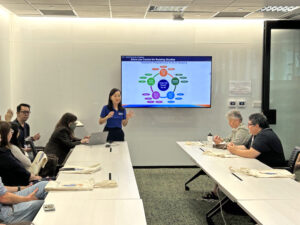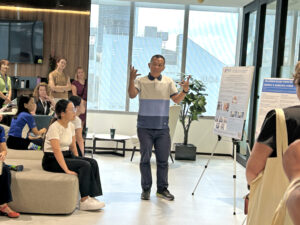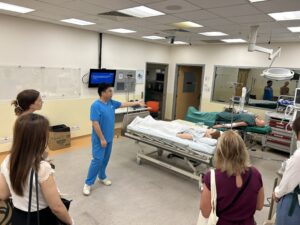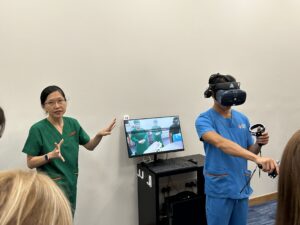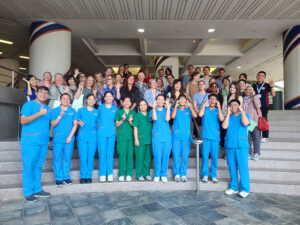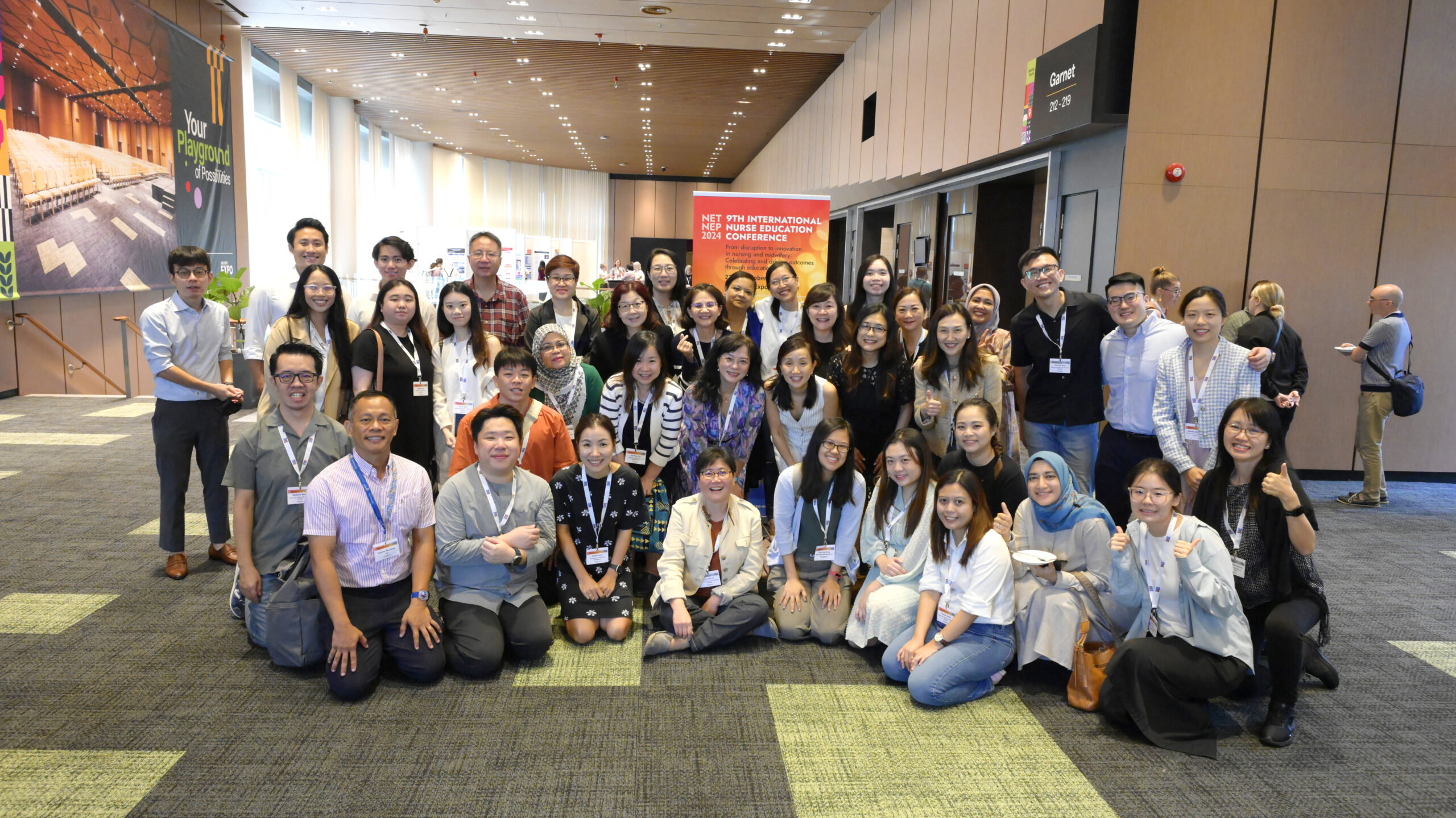
Global health challenges. Nurse shortages. Emerging technologies. These were some of the topics discussed at the 9th International Nurse Education Conference (NETNEP)—which saw over 600 delegates gathering in Singapore.
Held at the Singapore Expo, NETNEP is a leading conference held biennially for Nursing educators. Themed “From disruption to innovation in nursing and midwifery: Celebrating and driving outcomes through education”, this year’s edition held from 28 to 30 October featured over 60 presentations and a series of workshops. Singapore is the first country in Asia to host NETNEP.
Addressing the attendees, keynote speaker Professor Liaw Sok Ying, Head of Alice Lee Centre for Nursing Studies (NUS Nursing), National University of Singapore Yong Loo Lin School of Medicine, shared that the conference venue had temporarily served as isolation and quarantine facilities during the COVID-19 pandemic. The site evoked memories of the challenges she and colleagues at NUS Nursing had to confront.
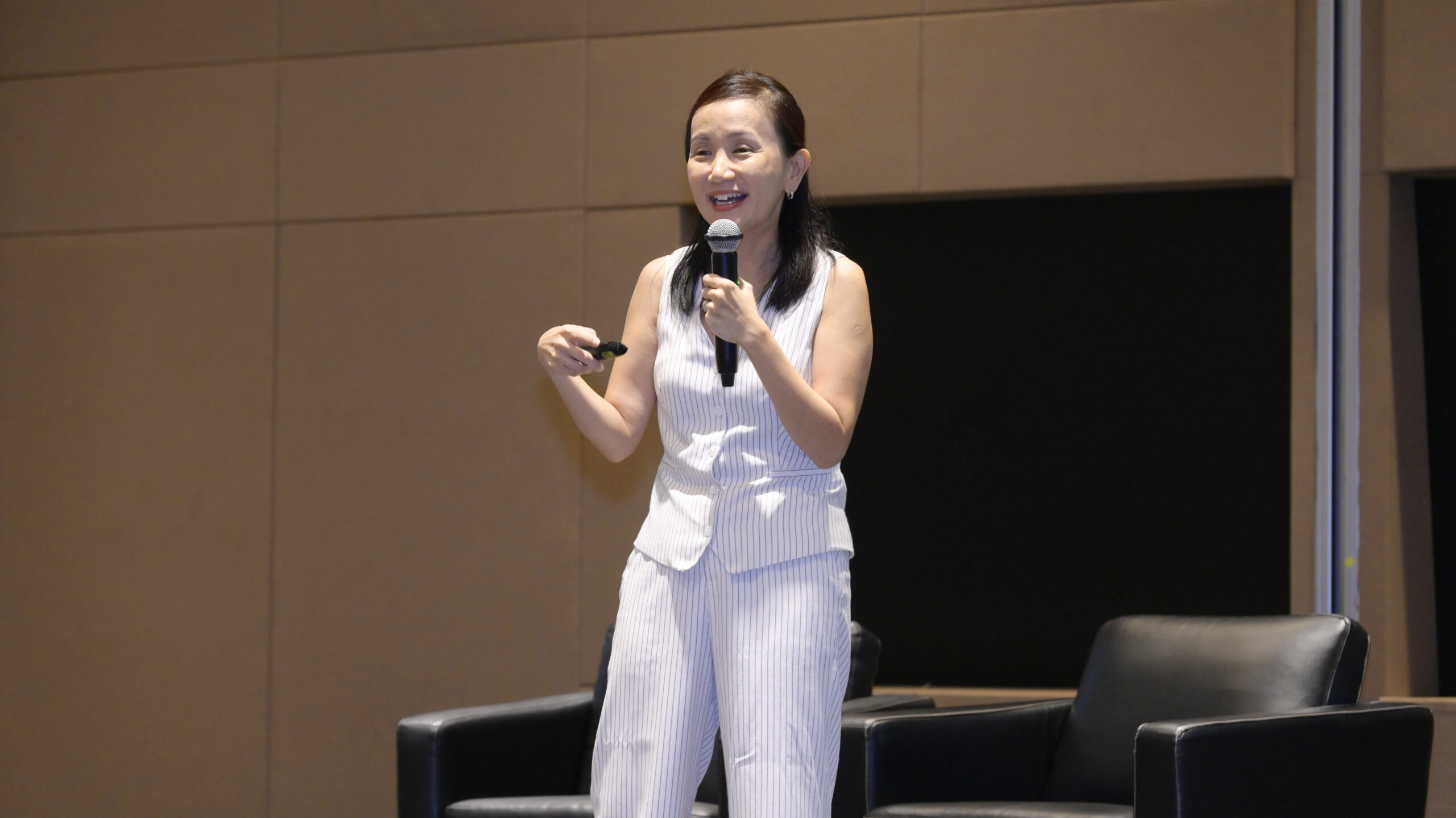
Prof Liaw Sok Ying at her keynote speech.
She said, “When the circuit breaker and safe-distancing measures were announced and clinical attachments were suspended—we had to figure out ways to help graduating students fulfil 160 clinical placement hours.”
A long-time proponent of simulation-based learning, virtual simulation was an obvious choice for Prof Liaw. But there was a catch—“Nothing was ready to go yet, even though we had done research projects and test pilots on virtual simulation learning.” COVID-19 provided the needed motivation. Using a mix of multimodal simulations—high fidelity, procedural and computer-based—the NUS Nursing team eventually enabled students to complete their clinical practice hours.
One programme that was successfully integrated into the NUS Nursing curriculum was Create Real-time Experience and Teamwork in Virtual Environment (CREATIVE), a desktop virtual reality simulation where Nursing and Medical students work together to care for a patient. Since then, the team has trained three batches of Nursing and Medical students through CREATIVE. Despite the comfort of learning from home, students have expressed that they preferred a mix of virtual and hands-on simulation.
Prof Liaw said, “One interesting finding was that there was no difference in learning outcomes in terms of communication, attitude, stress level and performance when it comes to virtual reality and physical simulation learning. But for now, we don’t know if virtual simulation can replace clinical placement hours—that’s a study for another day.”
Digital technology for communication teaching
The pandemic provided the impetus for many Nursing educators to enhance their teaching methods and delivery with technology. In her talk, Senior Lecturer Dr Chen Hui-Chen shared her own experience. “I teach effective communication and students would share how they sometimes struggle to understand what patients are trying to say, or where caregivers are coming from.”
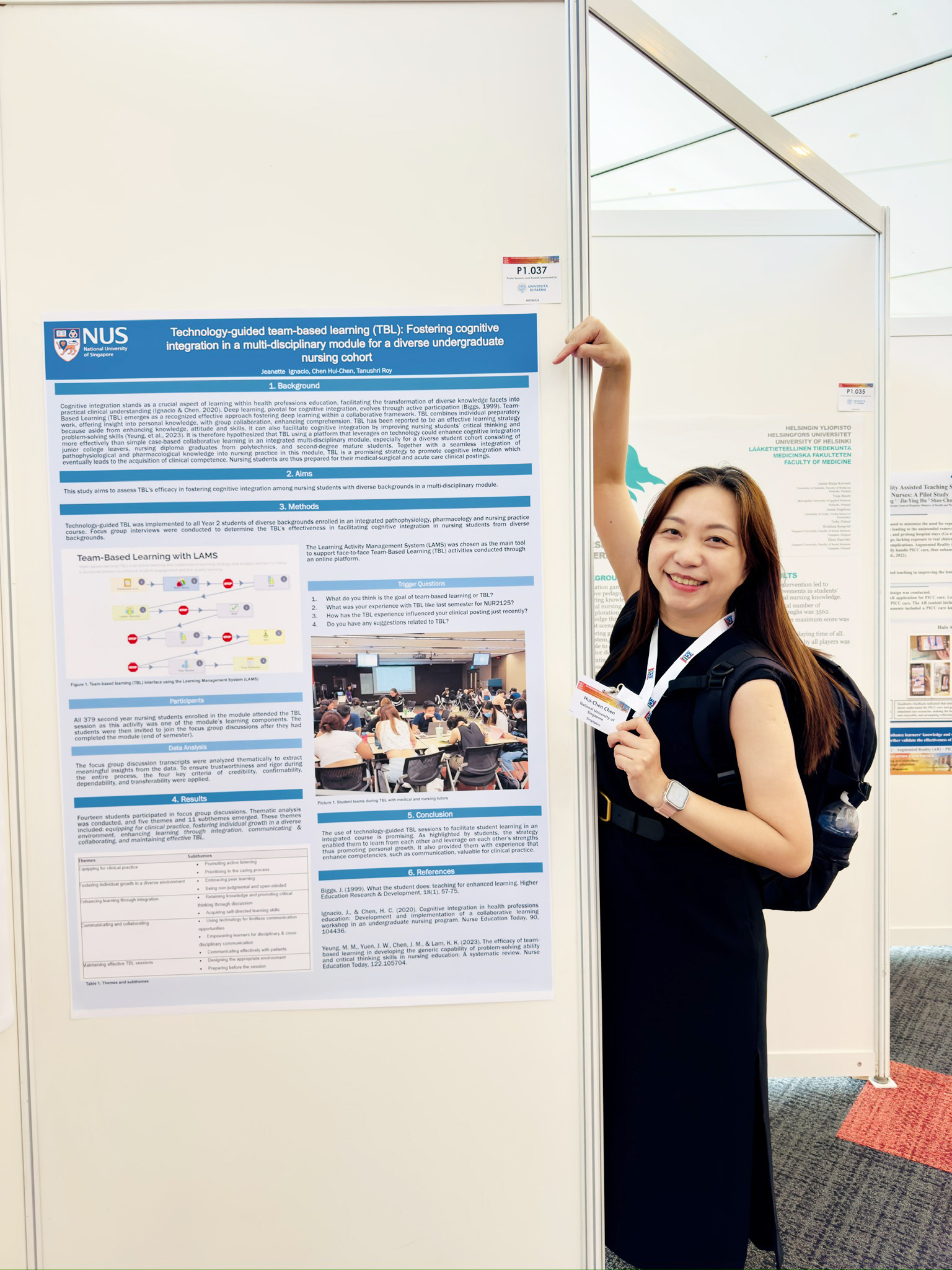
Dr Chen Hui-Chen showcasing her poster on technology-guided team-based learning.
She continued, “So when COVID-19 struck and everything moved online, it felt like a sign to look beyond traditional methods and try new ways of helping students communicate more effectively.” This led Dr Chen and her team to conduct a literature review on the effectiveness of digital interventions for teaching communication strategies in Nursing.
From their review of 17 studies, the team found that digital learning programmes such as apps and e-learning modules demonstrated effectiveness over traditional teaching methods. Dr Chen chalked that up to the ability to accommodate different learning styles, incorporation of multimedia and the option for self-paced learning.
The team is now exploring ways to incorporate digital methods into the NUS Nursing curriculum, though Dr Chen also cautioned that people and not technology, remain at the heart of communication. She said, “Our aim is to use technology to help students build a solid foundation through practice—so they will eventually have the confidence and skill to communicate effectively.”
ChatGPT for Nursing Education
While Dr Chen explored incorporating new digital methods of teaching, Professor He Hong-Gu Linda’s presentation examined technology from another angle—the impact of emerging technology such as generative artificial intelligence (genAI) on Nursing education. Taking the world by storm since its launch in late 2022, genAI tools such as ChatGPT were initially viewed with suspicion by educators.
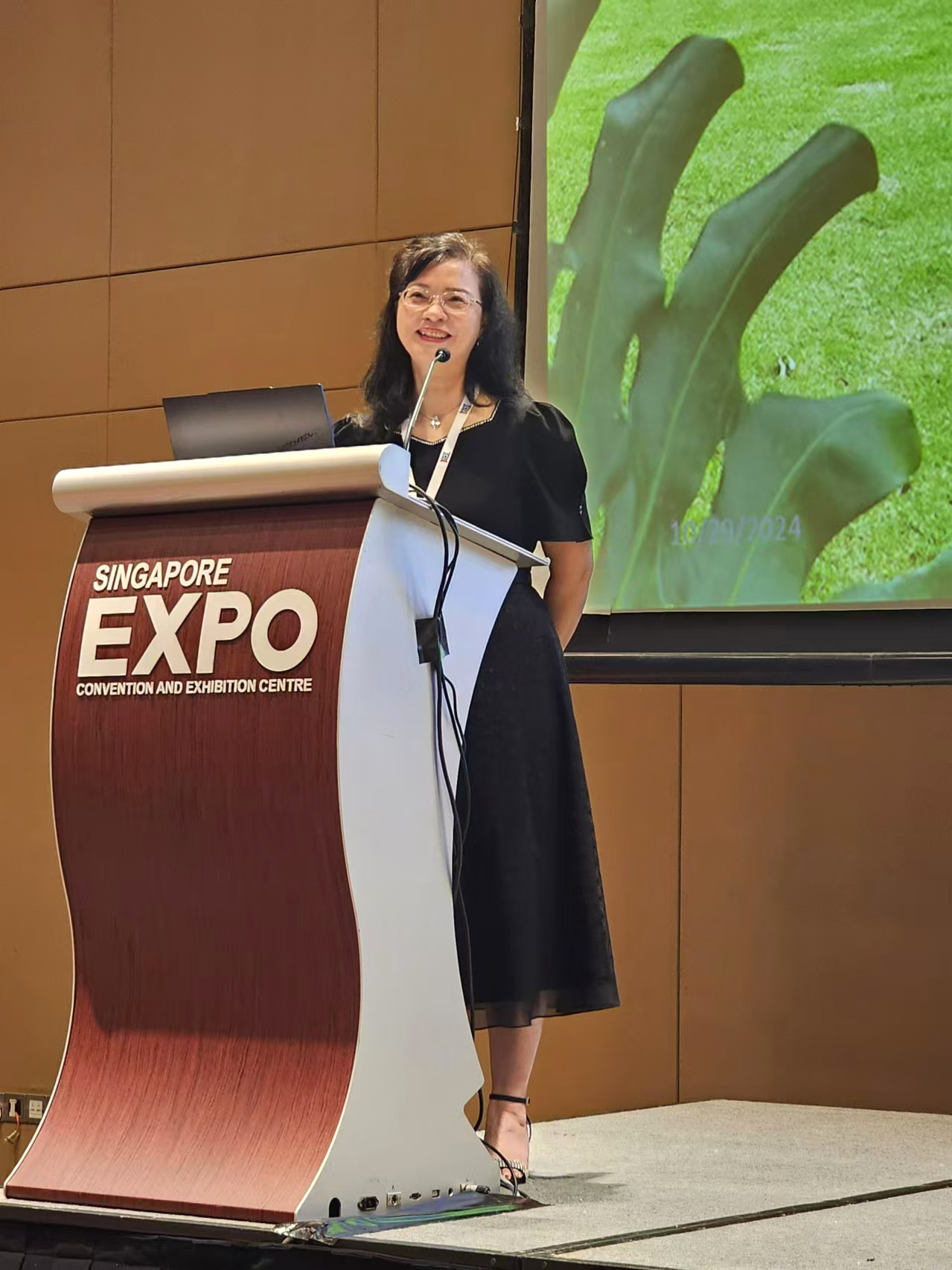
Prof He Hong-Gu shared her experiences of utilising ChatGPT for research and education.
“Our literature review showed that universities were cautious about ChatGPT—many were concerned about issues such as plagiarism, misuse or overreliance. The consensus was to adopt a ‘don’t touch’ approach,” Prof He said. “But the reality is that it is out of our hands. Students are going to use ChatGPT in their coursework, whether we approve or not.”
To gain a more accurate perspective of how university students in Singapore viewed ChatGPT and the ethical issues surrounding the tool, Prof He and her team conducted a survey of 228 students from five Singaporean universities. For the survey, the team developed an AI-CLEARS questionnaire consisting of 10 demographic and usage pattern questions, 41 Likert-scale items and eight open-ended questions—from scratch.
The survey confirmed Prof He’s initial observations—almost 100% of respondents said they intended to use the tool while 88% planned to use it while completing assignments. However, 60.6% mentioned that they would avoid using ChatGPT to fully complete their assignments. “Students are aware of potential issues and are using it with care,” Prof He pointed out. “But some expressed confusion over what constituted plagiarism or cheating when it comes to using ChatGPT.”
She continued, “The fact is, as educators, we don’t always know either when it comes to such emerging trends and technology. But we hope that a better understanding of students’ attitudes and perspectives can help universities develop guidelines for responsible and ethical usage while preventing misuse.”
Learning opportunities beyond the Nursing curriculum
In an academic landscape where genAI can offer up immediate answers, students need to know how to select the right sources, evaluate them critically and avoid misinformation. As NUS Libraries Reference Librarian Ms Wong Suei Nee shared in her presentation, “Nursing students typically have to do a systematic review of primary studies as part of their Honours project—where search skills are crucial.”
To help these students gain a solid grounding in essential research skills, NUS Nursing has been collaborating with NUS Libraries to hold workshops. An introductory session is held in the semester before Honours year starts, followed by a hands-on workshop at the beginning of the following semester where students can practise their skills.
Ms Wong said, “After consultations with previous batches, we found that students wanted more than a one-off workshop. That’s why we start to engage them even before Honours year begin. Student feedback has shown that they find it useful, and that we have helped fill the gaps in their information literacy and enable them to think more critically about sources.”
One such student who has utilised her research and analytical skills to good effect is Ms Katherine Kuok, a recent NUS Nursing graduate and staff nurse at Changi General Hospital. At the conference, Ms Kuok presented her systematic review of Nursing student-led community health services and its effectiveness.
Using frameworks such as the PICO framework and Khan’s Five Steps, Ms Kuok’s review of 42 studies showed that even though community intervention is usually done as an extracurricular activity for Nursing students, it has positive effects on students’ learning and sense of self-efficacy.
She said, “By organising and participating in community health projects such as educational workshops and health screenings, students got to practise their skills outside of traditional clinical environments—leading to increased skills mastery and confidence in their role as student nurses.”
In tandem, community members were observed to experience positive health outcomes as a result of students’ efforts, such as decreased body mass index, increased physical activity as well as lower prevalence and incidence of disease. Ms Kuok said, “My review also showed that there was an increased use of outpatient services instead of emergency services, which could alleviate stress on acute hospitals.” Integrating such community interventions into the Nursing curriculum could therefore offer threefold benefits for Nursing students, the community and increasingly stretched public health systems.
Creating podcasts for geriatric care
Another pressing issue widely discussed during the three-day conference was the growing worldwide demand for nurses—which was exacerbated by the pandemic. Amidst the shortage, certain specialties were harder hit than others. As Dr Rosalind Siah shared in her talk, geriatrics was one of them.
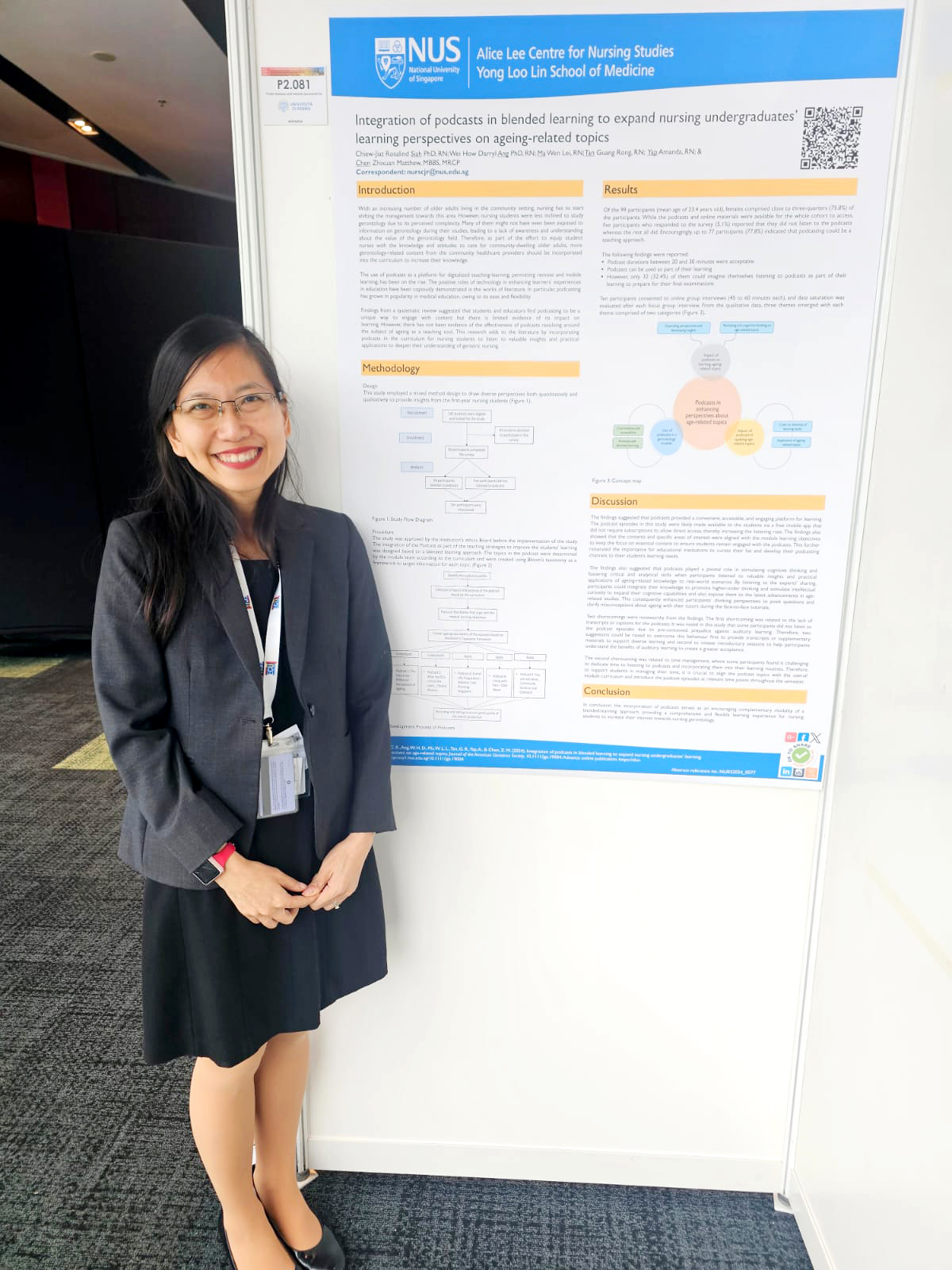
Dr Rosalind Siah giving an overview of the teaching outcomes using podcasts.
She said, “Population ageing is a global phenomenon. But if you look at Nursing curricula, geriatrics is often limited to a couple of courses—barely enough for students to familiarise with and grow their passion in the area.” With fewer nurses aspiring to specialise in geriatric care, this could lead to lower standards of Nursing care for older adults in the future. To engage students in thinking more deeply about the field of geriatrics, Dr Siah piloted a novel method of assessing students taking the course “Healthy Ageing and Well-being”—having them script and record podcasts on topics related to ageing.
Of the 116 students surveyed after the course, the majority agreed that creating podcasts allowed them to think deeply and creatively about the topics covered in class. “I was blown away by the amount of effort students put into the assignment,” shared Dr Siah. “They scripted skits, role-played as news anchors and conducted interviews—seeking out content experts such as healthcare professionals and even their own grandparents.”
“Importantly, they showed a greater interest and acceptance of geriatric Nursing, which will hopefully translate into better care for older adults as they graduate and enter the workforce,” Dr Siah concluded.
Academic-clinical collaboration for Advanced Practice Nurse training
Similar to geriatric nurses, Advanced Practice Nurses (APNs) are a rare breed—making up a mere 1% of the Nursing workforce in Singapore as of 2022[1]. Although a positive clinical learning environment (CLE) is central to APN development, the concept of CLE remains ambiguous in the Singapore context at present.
This led Associate Professor Zhou Wentao to investigate the key elements of creating an effective and supportive CLE for APNs. She said, “For a long time, graduates have been telling us that clinical learning is insufficient. With this investigation, I hope we can come up with more strategies to improve the APN training.”
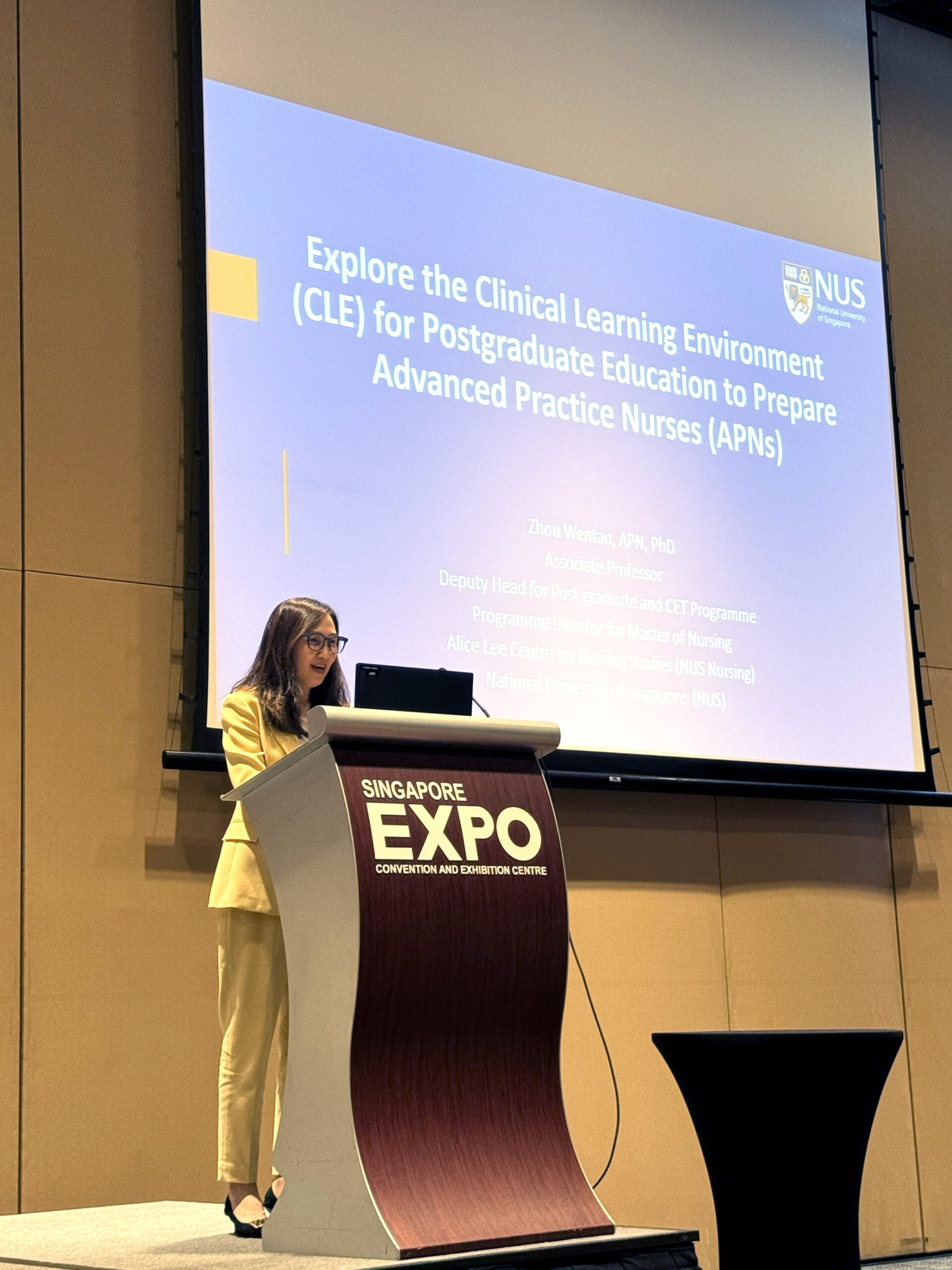
A/Prof Zhou Wentao spoke about academic-clinical collaborations for better APN training outcomes.
Through triangulating responses from focus groups comprising APNs, clinical preceptors and administrators, A/Prof Zhou’s research unveiled factors such as mismatches in expectations, lack of assessment standardisation across disciplines and assessors, variable preceptor engagement, and administrative and systemic barriers.
A/Prof Zhou said, “For instance, students may be paired with preceptors with heavier caseloads—and less time to provide constructive feedback. Or, different departments might have different expectations of students’ clinical ability.” With these findings, A/Prof Zhou proposed that for a successful CLE, engaged preceptors and self-directed learners are necessary—along with established assessment frameworks and a supportive learning culture.
“Much has been said about the importance of psychosocial support for nurses, and that applies for CLEs as well. This means we need to build a collaborative academic and healthcare structure for aspiring APNs to learn well—and that would take collective effort from learners, educators and healthcare institutions,” said A/Prof Zhou.
Supporting students’ mental well-being through mentorship
Also touching on psychosocial support was Senior Lecturer Dr Yoon Hyojin, who spoke about bolstering the mental well-being of professional conversion programme (PCP) students with a digital peer mentoring programme. She said, “PCP students are different from most of our undergraduates in that they may be returning to academics after a long break, as well as are shouldering more social and financial responsibilities. Naturally, we were worried about their mental well-being—especially during the pandemic.”
Dr Yoon and her team enrolled 22 PCP mentees who were mentored by four graduate mentors. The programme utilised digital methods such as Canvas and WhatsApp where mentees could interact with their mentors for emotional and moral support, as well as Zoom sessions where mentors offered feedback on mentees’ performance of clinical skills. The team found that PCP students find more meaning in their role as student nurses, while the mentors enjoyed guiding their mentees.
Dr Yoon said, “By taking on the roles of mentors, the graduate students reflected that they developed greater critical awareness—and felt empowered to create a caring learning environment for their mentees. With the feedback, we are now testing a hybrid model with increased clarity for mentors’ roles and even the possibility of adding a large language model.”
An encouraging and supportive learning environment
As she wrapped up her keynote on the last day of the conference, Prof Liaw echoed the desire to create a caring learning environment for Nursing students. Reflecting on her return to the Nursing frontlines during COVID-19, Prof Liaw shared her experiences of feeling like a student again as she refreshed her clinical knowledge in preparation for serving in the intensive care unit (ICU).
She said, “I haven’t been back in the ICU for 25 years—and was glad that we were given a crash course to refresh our clinical skills. But in that moment, I experienced the stress and anxieties that our students go through. With this experience, I’m determined to create a psychologically nurturing environment for our students—one in which they feel safe to voice out their concerns and do their best.”
[1] Health Manpower. Ministry of Health. https://www.moh.gov.sg/resources-statistics/singapore-health-facts/health-manpower


